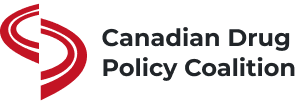Our laws and drug policies must uphold the fundamental rights of all people.

A human rights-based approach to drug policy begins from the foundational understanding that all people, including people who use drugs, have rights, including the right to autonomy, dignity, an adequate standard of living, life, liberty and security of the person. Governments and service providers have an obligation to uphold these rights.
Our current drug policies deny people their human rights, drive inequality and marginalization and contribute to cycles of harm such as poverty and homelessness.
Upholding human rights through drug policy means:
- People who use drugs have equitable access to health, which includes harm reduction, primary and emergency care, and nonprofit voluntary treatment services
- People who use drugs have access to the conditions that promote health – the social, economic, legal, and cultural determinants of health – such as safe, affordable housing, and the ability to live free from poverty.
People who use drugs have the right to autonomy and meaningful participation in healthcare decisions and in health policy
Explore our work on Human Rights Issues:
- Drug Policy and Racism
- It Is Not a Crime to Save a Life, legal considerations for those supporting or running an overdose prevention site in Ontario, 2025
- Drug Policy and Human Rights Implications in Canada, CDPC Submission to United Nations High Commissioner for Human Rights, 2023
Explore external resources:
